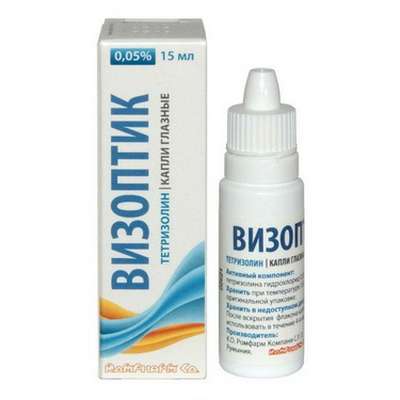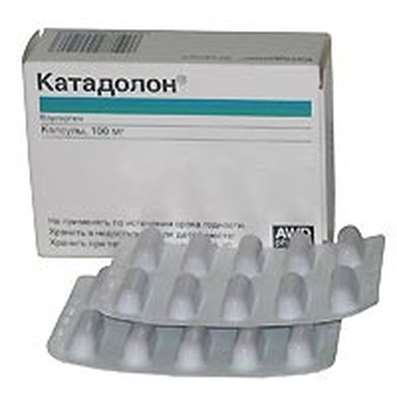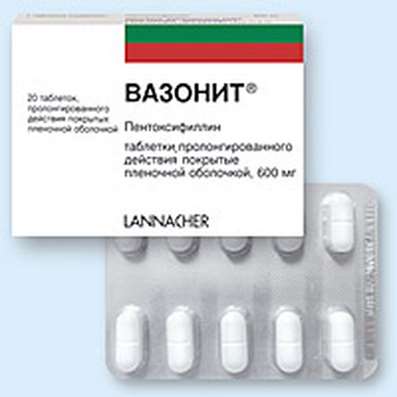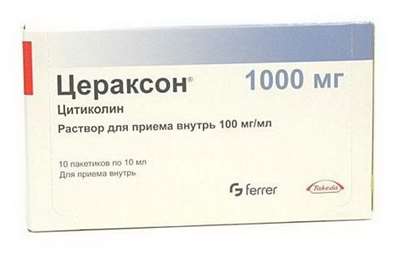Modern antidepressants
30 Jul 2018
Antidepressants - a group of psychotropic drugs that affect depressive affect. For the first time, the use of antidepressants (iproniazide, a class of MAO inhibitors and imipramine, a class of tricyclic antidepressants, a monoamine-type reuptake inhibitor of mixed type) was recorded in 1957.
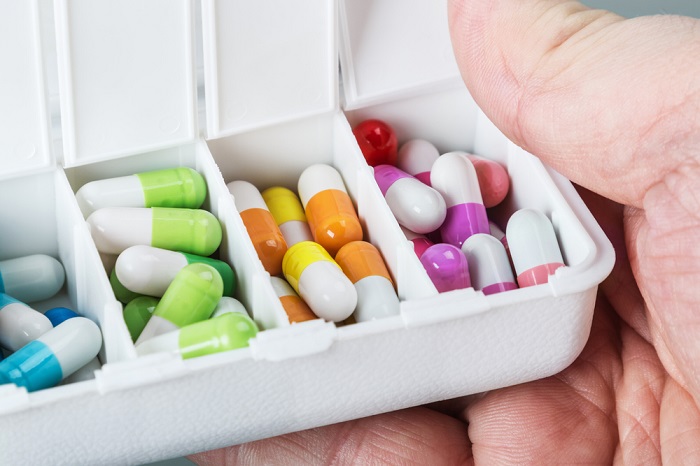
Pharmacological effects of antidepressants are carried out at the level of synapses. The two main ways of their work are the blockade of the decay of the mediators and their re-uptake by the presynaptic membrane; and in both cases there is an increase in the concentration of mediators (norepinephrine, serotonin, dopamine) in the synaptic cleft and, as a consequence, their longer and higher functional activity. In recent years, a number of drugs have been shown to act directly on the postsynaptic membrane receptors, in particular, the sensitivity of receptors and their blockade. The real pharmacological action of antidepressants is much broader, however, as a rule, their side effects are associated with it.
With each form of pharmacological activity of antidepressants, certain clinical effects (including side effects) are associated. Note that the actual antidepressant effect is manifested only in four of the ten mechanisms of action of antidepressants.
The blockade of norepinephrine reuptake (1) is accompanied by a decrease in psychomotor inhibition, an improvement in mood, tremor, tachycardia, an erection disorder; blockade of reuptake of serotonin (2) - correction of low mood, decreased vital anguish, decreased phobic symptoms, mild analgesic effect, decreased anxiety (in therapeutic doses), appetite, craving for alcohol, tobacco, and other substances that cause dependence , aggressive behavior, it provokes nausea, headaches, tremors, dysarthria; blockade of dopamine reuptake (3) is manifested by psychomotor activation, increased hallucinatory and delirious activity (if any); blockade of histamine (H1) receptors (4) is accompanied by sedation, drowsiness, lowering of arterial pressure; blockade of muscarinic receptors (5) is accompanied by double vision, dry mouth, tachycardia, constipation, urinary retention; blockade of alpha-adrenergic receptors (6) causes dizziness, orthostatic collapse, sedation, drowsiness, priapism; blockade of dopamine receptors (7) leads to a decrease in psychotic symptoms, a violation of libido and erection in men, extrapyramidal disorders; blockade of serotonin receptors (8) leads to a decrease in anxiety (anxiolytic effect), reduces the manifestation of negative symptoms in schizophrenia, reduces depressive symptoms, improves sleep quality, lowers blood pressure; inhibition of MAO type A (deamination of serotonin, norepinephrine, dopamine) (9) leads to an activating effect, an antidepressant effect, accompanied by an increase in anxiety, insomnia, hypertension, tyramine reactions (they are caused by intolerance to beans, cheese, coffee, smoked products, beer, red wine); inhibition of MAO type B (deamination of beta-phenylethylamine, benzylamine, dopamine) (10) associated hemodynamic disorders, hypotensive effect, anti-Parkinsonic effect.
At present, it is customary to classify antidepressants according to their pharmacological action. This is due primarily to the nature of their therapeutic effect, depending primarily on the mechanism of influence on the mediator exchange, and not on the chemical nature of the active substance. Today, the clinic uses drugs from four groups.
Group 1. The blockers of presynaptic capture of monoamines (here and below the international names). A. Noradrenalin - Desipramine, Amoxaline, Nortriptyline, Dibenzipine, etc. B. Serotonin - Citaloprim, Fluoxetine, Zimelidin, Trazodone, etc. V. Dopamine - Diclofensin, Bupropion, etc. G. Mixed action (A + B) - Amitriptyline, Clomipramine, Doxepin, and others.
Group 2. Blockers of pathways of metabolic destruction of monoamines (MAO inhibitors - enzyme monoamine oxidase). A. Irreversible actions, non-selective (inhibit MAO by types A and B) - Iproniazide, Nialamide, Isocarboxazide, etc. B. Reversible action (MAO inhibitory, selectively type A) - Pyrazidol, Mok Lobemide, Tetrindol, Befloxaton, etc. In Reversible action (inhibit MAO, indiscriminately, in types A and B) - Caroxazone, Indopan, Sidnofen, etc.
Group 3. Stimulators of receptors of the postsynaptic membrane. A. Noradrenergic - Johimbin, Clonidine, Salbutamol, etc. B. Serotonergic - L-tryptophan, Buspiron, etc. B. Dopaminergic - Levodopa, Bromricrytin, amphetamines, etc. G. GABAergic - Alprozalam, Clonazepam, Carbamazepine and others.
Group 4. Drugs with different mechanisms of action. A. Blockers of serotonin receptors - Ritanserin, Azafen, Tianeptin, etc. B. Holinolitics - Biperidin, Orfenadrin. B. Nootropics - Indeloxazine, Exifon, etc. G. Blockers of dopaminergic receptors (Thymoneuroleptics) - Risperidone, Chloroprotexen, Flupentixol, Pimozid, etc. D. Hormones - endorphins, estrogens, androgens, oxytocin, vasopressin and many others E. With an unknown mechanism actions - lithium salts, calcium channel blockers, metapramine and many others.
Perhaps this classification will not seem very familiar, but it is extremely convenient for predicting the main and side effects of the drug. In addition to proper antidepressants, this classification includes substances that have timoanaleptic and psychostimulating properties, which by chemical classification are very far from antidepressants.
The chemical classification of antidepressants relies on the number of hydrocarbon heterocycles in their structure. Isolate: monocyclic (1) - fluoxetine, bicyclic (2) - trazodone, paroxetine, sertraline, tricyclic (3) - amitriptyline, imipramine, tianeptine, tetracyclic (4) - pyrlinod, Mianserin, and MAO inhibitors (5).
The main guarantee for the success of antidepressant treatment is proper diagnosis. Any depression is a complex of phenomena requiring psychopharmacological, psychotherapeutic and somatic treatment. Antidepressants differ significantly in the effectiveness of action for depression neurotic and psychotic levels. At appointment take into account sedative and stimulating properties of preparations, and also specific selective activity of each of them. Antidepressants are successfully used to treat anxiety, including panic disorders, with somatic pathology, including chronic pain, somatization disorders, alcoholism and drug addiction, phobic disorders. There are recommended doses and intervals of admission, but often practicing specialists with success appoint different doses and frequency of admission. Often antidepressants are used in combination with other drugs, they can enter into complex (and not always predictable) interactions with them, which significantly changes the nature of their action. It should be noted that for most antidepressants a deferred effect for 2-3 weeks is characteristic, which is caused by the peculiarities of accumulation of mediators.
Below, we briefly describe the antidepressants most often used in practice. You will find detailed information on the product on the leaflet. We brought the most common brand names and international ones.
Azone (Trazodone) is a selective inhibitor of presynaptic (reverse) capture of serotonin, produced by Orion, Finland. Used for a wide range of depressions. Contraindicated in pregnancy. Incompatible with MAO inhibitors. Strengthens the effect of alcohol. Side effects - drowsiness, dizziness, weakness, hypotension.
Alprox (Orion, Finland), Xanax (Pharmacia & Upjohn, USA), Neurole (Lechiva, Czech Republic) (Alprazolam) is a stimulator of GABAergic receptors of the postsynaptic membrane, used for neurotic depressions accompanied by anxiety, insomnia, somatization, with panic disorders. Contraindicated in pregnancy, children, with pathology of the thyroid gland. Side effects - headache, drowsiness, dyspepsia, dysarthria, coordination disorders, decreased libido in men and women, addiction.
Amitriline (Lek, Slovenia), Amitriptyline (Polfa, Poland, Slovakofarma, Slovakia, Weimer pharma, Germany) (Amitriptyline) is a tricyclic antidepressant, a blocker of presynaptic capture of monoamines of mixed type, is effective in psychotic and neurotic depressions, endogenous and exogenous, age (also used to treat enuresis). Contraindicated in glaucoma, epilepsy, impassability of the intestine. With caution in pregnancy. Not compatible with MAO inhibitors. Side effects - dryness of mucous membranes, visual impairment, psychotic symptoms, collapse, allergic reactions, constipation, gynecomastia, decreased libido in men, galactorrhea in women.
Aurorix (Roche, Switzerland) (Moclobemide) is an MAO inhibitor of reversible action, type A. It is shown in depression of various etiologies, especially atypical (masked) depressions. Contraindicated in children. Side effects - anxiety, sleep disorders, headache, visual impairment, skin reactions, dyspepsia.
Deprex (Lechiva, Czech Republic), Portal (Lek, Slovenia), Prozac (Lilly, USA), Fluoxonil (Orion, Finland), Fluoxetine (Nycomed, Norway) (Fluoxetine) is a selective inhibitor of presynaptic seizure of serotonin. It is indicated for depression of various genesis, eating disorders. Contraindicated in diseases of the kidneys, prostate adenoma, glaucoma, epilepsy. Not compatible with MAO inhibitors and lithium salts. Side effects - nausea, headache, dyspepsia, sleep disorders.
Doxepin (Polfa, Poland) (Doxepin) - a tricyclic antidepressant, an inhibitor of presynaptic seizure of mixed action, is shown mainly with neurotic depressions, especially accompanied by severe anxiety. Contraindicated in glaucoma, prostate adenoma, not recommended for children. Incompatible with MAO inhibitors, alcohol, lithium salts, barbiturates, morphine and its derivatives (toxic effect). Side effects - headache, insomnia, dyspeptic phenomena, tremor, skin rash.
Zoloft (Pfizer, USA) (Sertralin) is a selective inhibitor of presynaptic seizure of serotonin. It is indicated for neurotic depressions accompanied by anxiety, panic disorders, obsessive-compulsive disorders. Incompatible with MAO inhibitors. Side effects - dyspeptic phenomena, including diarrhea, insomnia or drowsiness, erectile dysfunction and ejaculation.
Coaxil (Servier, France) (Tianeptin) is a stimulant of serotonin reuptake. It is shown in cases of depression of different etiology and character, with somatization disorders, during abstinence with alcoholism. Contraindicated in children. Incompatible with MAO inhibitors. Side effects - decreased appetite, indigestion, headache, insomnia, nightmares, decreased reaction speed, pain in the heart, muscle pains, laryngospasm.
Lerivon (Organon, Holland) Miansan (Zorka, Yugoslavia) (Mianserin) is a tetracyclic antidepressant, a blocker of presynaptic alpha-adrenergic receptors. It is used for all types of depression. Incompatible with MAO inhibitors. Side effects - drowsiness, gynecomastia, impaired blood composition.
Melipramine (Egis, Hungary) (Imipramine) is a tricyclic antidepressant, a monoamine-type reuptake inhibitor of mixed type, shown in endogenous depression: manic-depressive psychosis, used to treat enuresis. Contraindicated in ischemic heart disease, epilepsy, glaucoma, prostate adenoma, pregnancy, in early childhood. Incompatible with alcohol, MAO inhibitors. Side effects - headaches, fainting, visual impairment, epileptic seizures, psychotic symptoms, tremor, decreased libido and erectile dysfunction, gynecomastia, allergic reactions.
Remeron (Organon, Holland) (Mirtazapine) is a blocker of presynaptic alpha-adrenergic receptors. It is indicated for depressions of different genesis. Not compatible with MAO inhibitors. Side effects - drowsiness, inhibition, increased appetite, cramps, tremor, oppression hemopoiesis, edema, dyspepsia, headaches.
Fevarin (Pharmacia & Upjohn, USA) (Fluvoxamine) is a selective inhibitor of presynaptic seizure of serotonin. It is indicated for depression of various genesis. Contraindicated in convulsions, not recommended for children. It is not compatible with MAO inhibitors and tricyclic antidepressants. Side effects - nausea, vomiting, dizziness, headaches, agitation, dyspepsia, erectile dysfunction and ejaculation, decreased appetite.
The appointment of antidepressants is the prerogative of a psychiatrist. Do not try to apply the medication yourself!

 Cart
Cart

